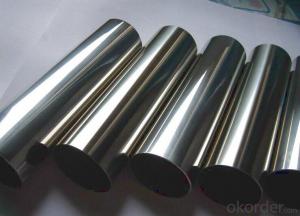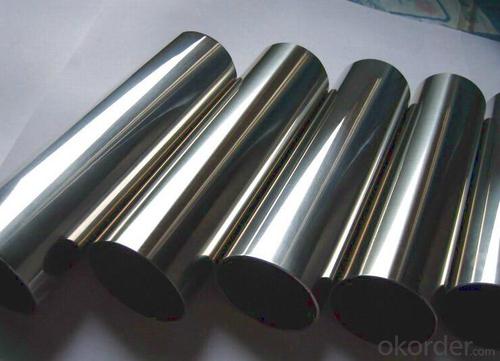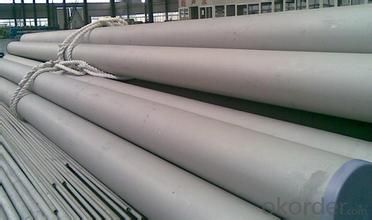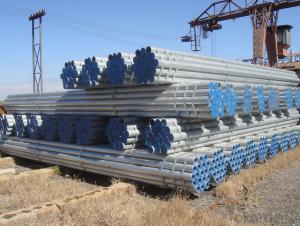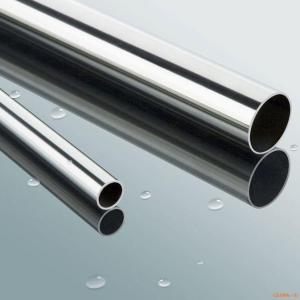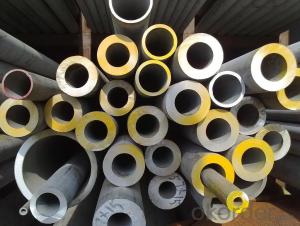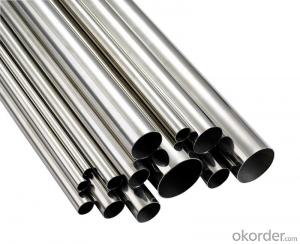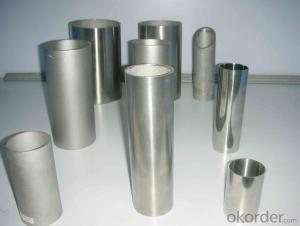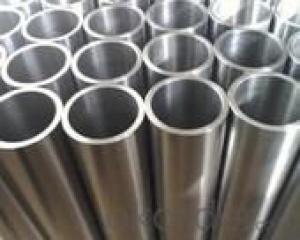Stainless Hot Rolled Steel Pipe 316
- Loading Port:
- China Main Port
- Payment Terms:
- TT or LC
- Min Order Qty:
- 25-35 kg
- Supply Capability:
- -
OKorder Service Pledge
OKorder Financial Service
You Might Also Like
Quick Details
| Standard: | JIS,AISI,ASTM,GB,DIN,CE | Place of Origin: | Guangdong China (Mainland) | Brand Name: | QX |
| Model Number: | 201/202/304/316/316L/430 | Type: | Welded | Steel Grade: | 300 Series |
| Application: | Decoration,construction, upholstery | Certification: | ISO | Welding Line Type: | ERW |
| Thickness: | 0.3mm to 3.0mm | Outer Diameter: | 9.53mm to 159mm | Polish: | Satin,Bright or Mirror |
| Grade: | 201,202,301,304,316,316l,430 ect. | Length: | In gernal 5.8m/6m or as customer request | Process method: | Hot rolled |
| Test: | Squash test, water pressure test,extended test,crystal rot test etc. | Production Standard: | ASTM A554 | Materials: | SUS 304, 201, 316, 316L,430 ect |
| OD tolerance: | + / - 0.15mm | Thickness tolerance: | +/- 10% | Length tolerance: | +/- 10mm |
Packaging & Delivery
| Packaging Detail: | Every tube is sleeved in plastic bag individually, and then several tubes are packed by weaving bag, which is seaworthy. Or 50kg/bundle, 500kg/bundle.We can pack as clients' requirement. |
| Delivery Detail: | 25 - 35 days for a full container. |
Specifications
Stainless Steel Pipe:
1.201,202,301,304,316L,430,etc
2.OD:6mm-159mm
3.Thickness:0.25mm-3.5mm
4.Finish:Mirror,Satin,Hairline
Stainless Hot Rolled Steel Pipe Image
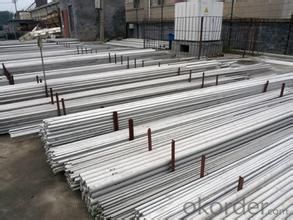
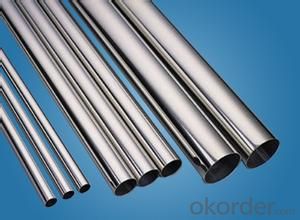
FAQ of Stainless Pipe
①How is the quality of your products?
Our products are manufactured strictly according to national and internaional standard, and we take a test
on every pipe before delivered out. If you want see our quality certifications and all kinds of testing report, please just ask us for it.
Guaranteed: If products’ quality don’t accord to discription as we give or the promise before you place order, we promise 100% refund.
②How about price?
Yes, we are factory and be able to give you lowest price below market one, and we have a policy that “ for saving time and absolutely honest business attitude, we quote as lowest as possible for any customer, and discount can be given according to quantity”,if you like bargain and factory price is not low enough as you think, just don’t waste your time.Please trust the quotation we would give you, it is professional one.
③Why should you chose us?
Chose happens because of quality, then price, We can give you both.Additionally, we can also offer professional products inquiry, products knowledge train(for agents), smooth goods delivery, exellent customer solution proposals.Our service formula: good quality+good price+good service=customer’s trust
SGS test is available, customer inspection before shipping is welcome, third party inspection is no problem.
- Q: What is the typical diameter range for steel pipes?
- The typical diameter range for steel pipes can vary depending on the specific application and industry requirements. However, in general, steel pipes can have diameters ranging from as small as 0.5 inches (12.7 millimeters) up to several feet (over a meter) in diameter. The most commonly used steel pipes for various purposes, such as plumbing, construction, and transportation of fluids or gases, typically fall within the range of 1/2 inch (13 millimeters) to 36 inches (914 millimeters) in diameter. It is important to note that larger diameter steel pipes are often used for industrial applications, such as oil and gas pipelines, while smaller diameter pipes are commonly used for residential and commercial plumbing systems.
- Q: Are steel pipes suitable for underground compressed air systems?
- Yes, steel pipes are generally suitable for underground compressed air systems. Steel pipes have several advantages that make them a popular choice for such applications. Firstly, steel pipes are known for their high strength and durability, which allows them to withstand the pressure and stress associated with compressed air systems. They can handle high operating pressures without any significant risk of bursting or leaking. Secondly, steel pipes have excellent resistance to corrosion and can withstand exposure to moisture, soil, and other underground elements. This makes them a reliable choice for underground installations, where pipes may be exposed to moisture and other potentially corrosive substances. Furthermore, steel pipes are relatively easy to install and maintain. They can be welded or threaded together, ensuring a secure and leak-free connection. Additionally, steel pipes can be easily inspected and repaired if necessary, allowing for cost-effective maintenance and repairs. However, it is important to note that the suitability of steel pipes for underground compressed air systems may also depend on other factors such as the specific requirements and conditions of the system. It is advisable to consult with a professional engineer or a qualified expert to ensure that steel pipes are the most appropriate choice for a specific application.
- Q: How are steel pipes protected against galvanic corrosion?
- Steel pipes are protected against galvanic corrosion through the use of sacrificial anodes, coatings, or the application of electrical currents. These methods create a barrier or redirect the corrosion process, preventing the steel pipes from deteriorating due to galvanic reactions.
- Q: What are the lengths of scaffold steel tubes?
- Scaffold tubes are our name for materials used to build scaffolding, because most scaffolding uses tubular bamboo or steel tubing. Bamboo and other bamboo is for a long time in the use of the scaffolding tube, but due to lack of safety and durability, now only in rural and urban area construction is lagging behind some of the home building small building has been used. The modernization construction, the most commonly used type of scaffolding pipe is steel pipe, the scaffolding should not only meet the demand of workers, but also to meet the characteristics of scaffolding firm and durable, so tough hard steel is the best choice. The selected steel pipe generally requires smooth surface, no cracks, no bending, no rust, and meet the relevant national standards.
- Q: What are the different end types for steel pipes?
- There are several different end types for steel pipes, including plain ends, beveled ends, threaded ends, and grooved ends. Plain ends are smooth and do not have any special features. Beveled ends are cut at an angle to facilitate welding. Threaded ends have threads that allow for easy installation with other fittings. Grooved ends have grooves that enable quick and secure connections using couplings.
- Q: Can steel pipes be used for sewage and wastewater systems?
- Yes, steel pipes can be used for sewage and wastewater systems. Steel pipes are highly durable, resistant to corrosion, and can withstand high pressure and temperature conditions, making them suitable for transporting sewage and wastewater efficiently and securely. Additionally, steel pipes have a long lifespan and can handle the abrasive nature of sewage and wastewater, making them a reliable choice for such systems.
- Q: What's the difference between seamless steel pipe and welded pipe?
- Welded steel pipe, also known as welded pipe, is made of steel or strip after the formation of welding welded steel pipe, usually 6 meters in length. Welded steel pipe production technology is simple, high production efficiency, varieties and specifications, equipment investment is less, but the general strength is lower than seamless steel pipe.
- Q: What are the different types of coatings used for internal lining of steel pipes?
- There are several types of coatings commonly used for the internal lining of steel pipes, including epoxy coatings, polyurethane coatings, and cement mortar linings. These coatings are applied to protect the steel pipes from corrosion, improve the flow of fluids, and enhance the longevity and durability of the pipes.
- Q: How are steel pipes used in plumbing systems?
- Steel pipes are commonly used in plumbing systems for various purposes such as transporting water and gas. They are used to create a network of pipes that carry water from the main supply line to different fixtures like sinks, toilets, and showers. Steel pipes are durable, resistant to corrosion, and have high pressure and temperature tolerance, making them suitable for both residential and commercial plumbing systems.
- Q: What are the safety precautions to consider when working with steel pipes?
- When working with steel pipes, it is important to follow certain safety precautions to prevent accidents and injuries. Some key precautions include wearing appropriate personal protective equipment (PPE) such as gloves, safety glasses, and steel-toed boots to protect against cuts, burns, and impact injuries. It is also crucial to inspect the pipes for any defects or damage before using them and ensure they are properly supported and secured during installation to prevent them from falling or causing structural failures. Additionally, workers should be trained on safe lifting techniques to avoid strain or back injuries when handling heavy pipes. Regular maintenance and inspection of tools and equipment, as well as adherence to proper handling and storage procedures, are also essential for maintaining a safe working environment when working with steel pipes.
Send your message to us
Stainless Hot Rolled Steel Pipe 316
- Loading Port:
- China Main Port
- Payment Terms:
- TT or LC
- Min Order Qty:
- 25-35 kg
- Supply Capability:
- -
OKorder Service Pledge
OKorder Financial Service
Similar products
Hot products
Hot Searches
Related keywords
